Back to hive: Former OFW decides to stay in Batangas to establish a beekeeping business
By BENJAMIN SARONDO
Some Filipinos choose to work abroad because of the much higher salary and benefits they get. Raymund Mendoza, 35, decided to quit his job abroad and stay in the Philippines to start his beekeeping business, Saranghae Honey Bee Farm.
Raymund worked as a data encoder in the shipping industry in South Korea. After his 5-year contract, he came back home for his family and achieved his goal of starting a small business. “The reason why I went abroad is not just to help my family financially, but to save enough money for investment so I can start my own business,” Raymund said.
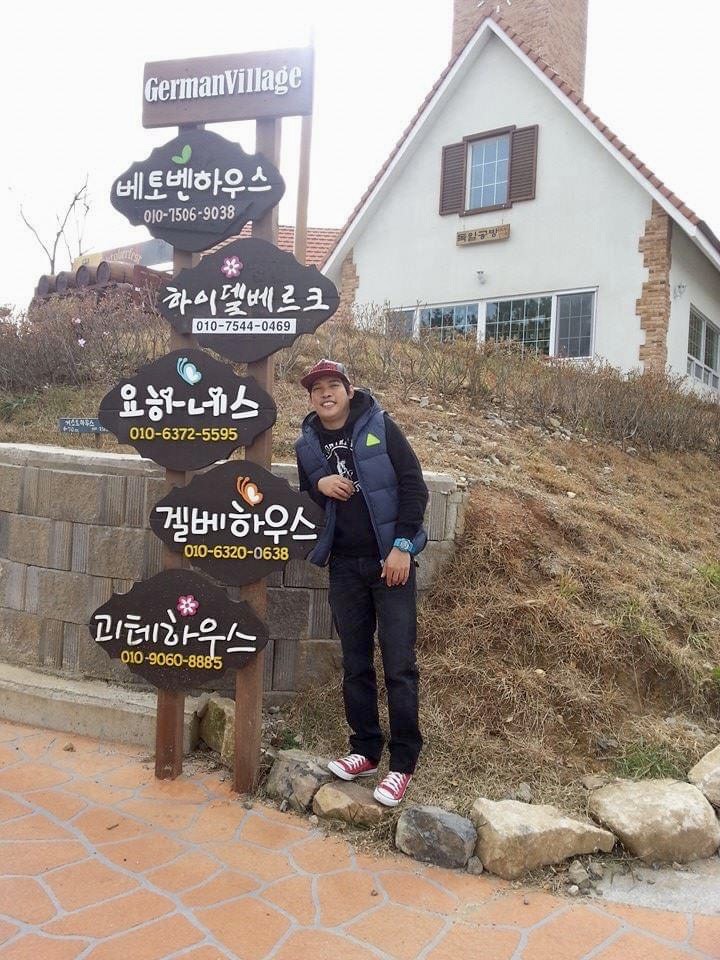
He admitted that he does not have any background in agriculture or beekeeping, but what made him decide to start a bee business was the unavailability of bee products in their area.
“Pure honey was not available in our town, and we needed to go to our neighboring town just to buy it. So I came up with the idea, together with my brother-in-law, Warren Alcaraz, to start a beekeeping business on our own so we could provide pure honey to people in our area instead of going to other towns,” Raymund said.
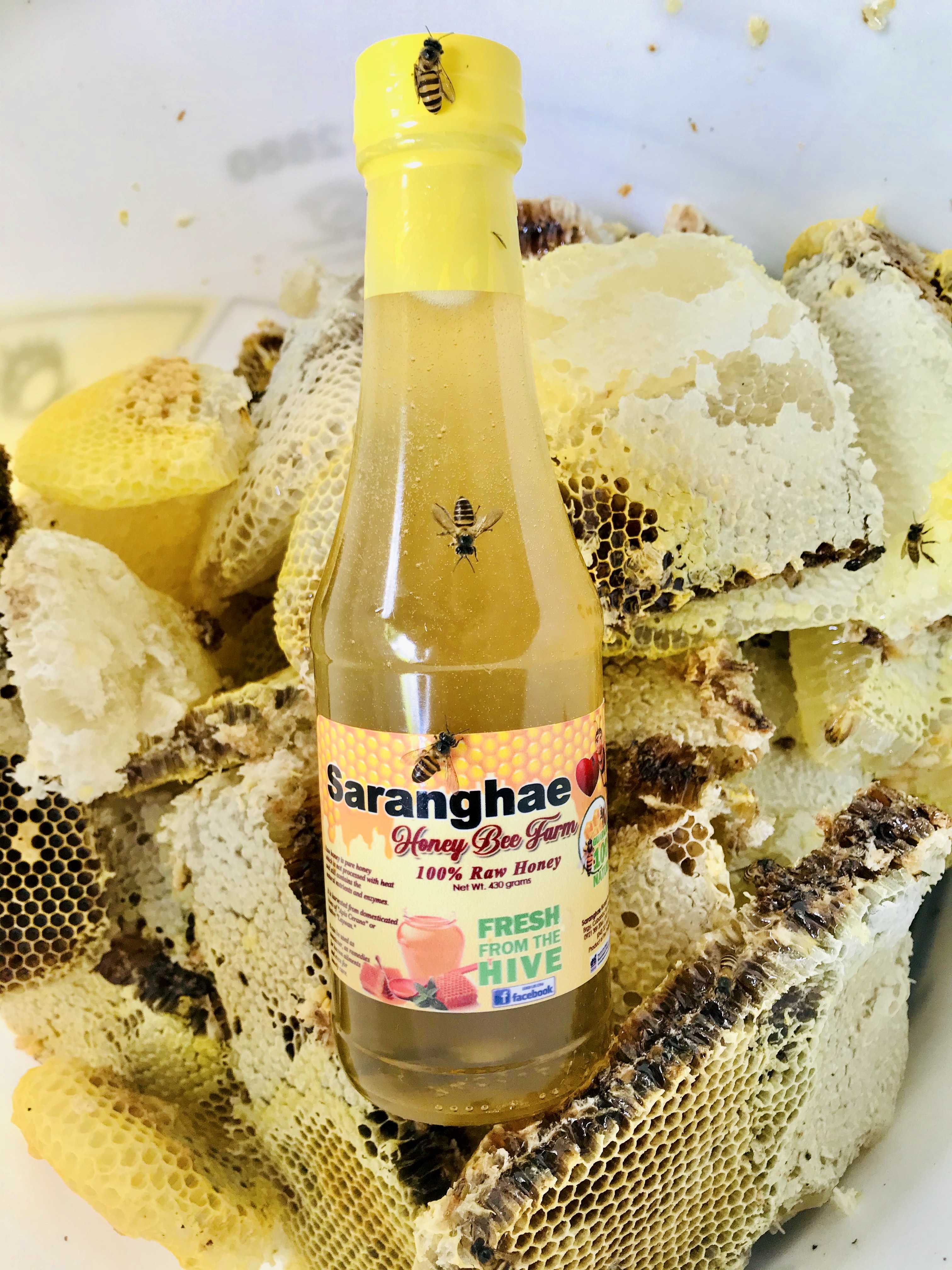
“Bee farming is a good business because it’s not only the honey that you can harvest and provide, but you can also help our farmers increase their crop yields through pollination.”
The beekeeping business was named Saranghae Honey Bee Farm. Raymund explained that Saranghae is a Korean word that means “I love you,” and it is his way of thanking South Korea, whom he worked for. "The majority of what I invest in this business comes from my savings when I was working in South Korea, and I want to thank them.”
You don’t need to have a big farm
Saranghae Honey Bee Farm is located in Barangay Cubamba, Taal, Batangas, and is 1,000 square meters in size. But Raymund said that in beekeeping, one does not need to have a big farm lot because bees can fly around and forage on their own.
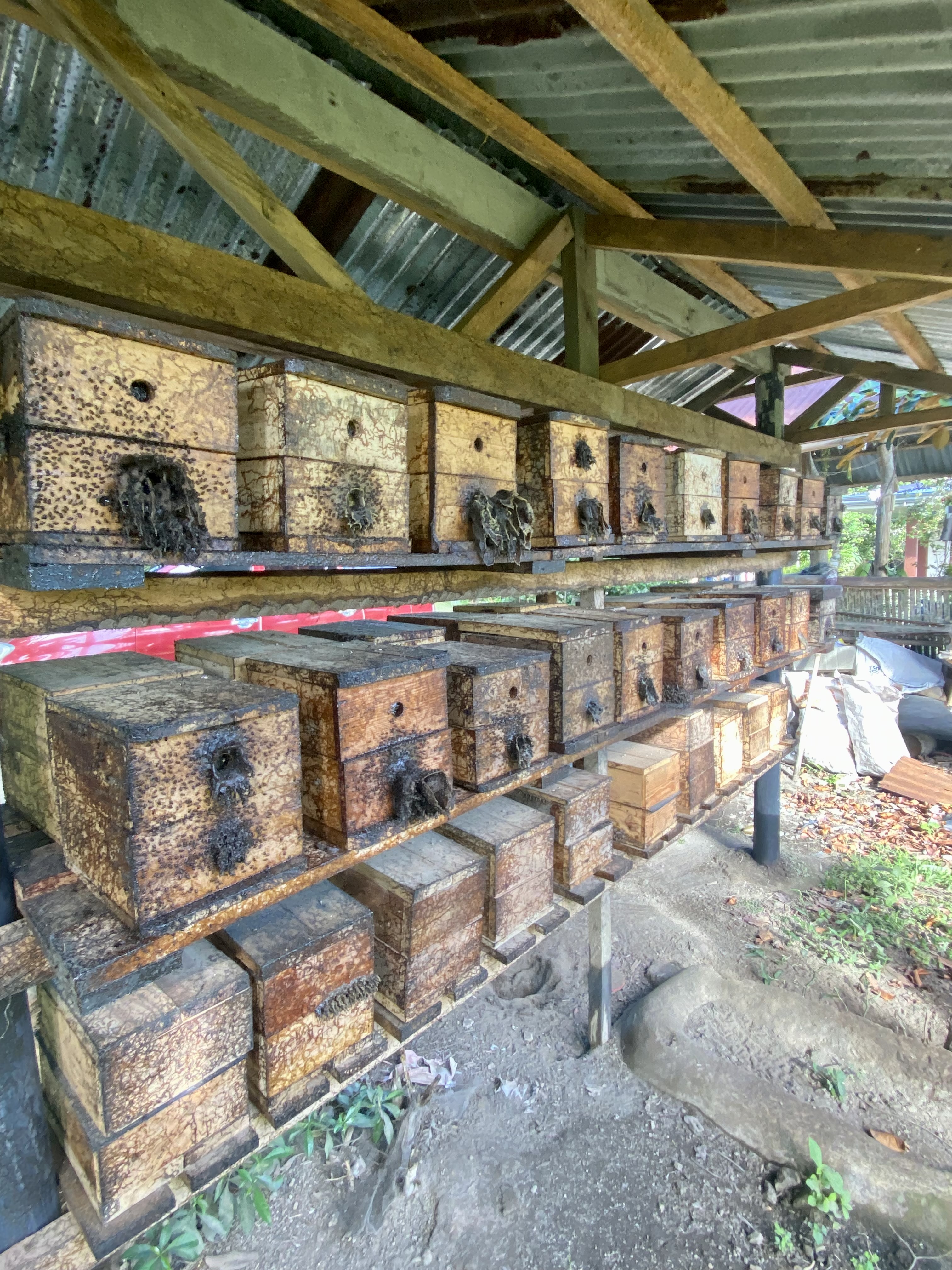
“The only important thing is to really consider the best location where you put them, where there are lots of fruit bearing trees and flowering plants,” he said.
Currently, he is keeping three bee species on the farm, which are native bees, European honey bees, and stingless bees.
“I enrolled in various beekeeping trainings and seminars so I could learn the proper beekeeping of honey bees and also to learn and discover the production of its various byproducts.” He said that he participated in the Intensive Beekeeping Training course in the University of the Philippines Los Banos Bee Program. In addition, he attended the Agriculture Training Institute to learn more about bees.
Purchase products in the physical store and online
Saranghae Honey Bee Farm offers various bee products, such as pure honey from their three bee species, honey cider vinegar, lip balm, beeswax balm, beeswax candle, beeswax pomade, skin moisturizer, propolis throat spray, turmeric instant herbal tea with honey, ginger tea with honey, honeycomb, and raw bee wax.
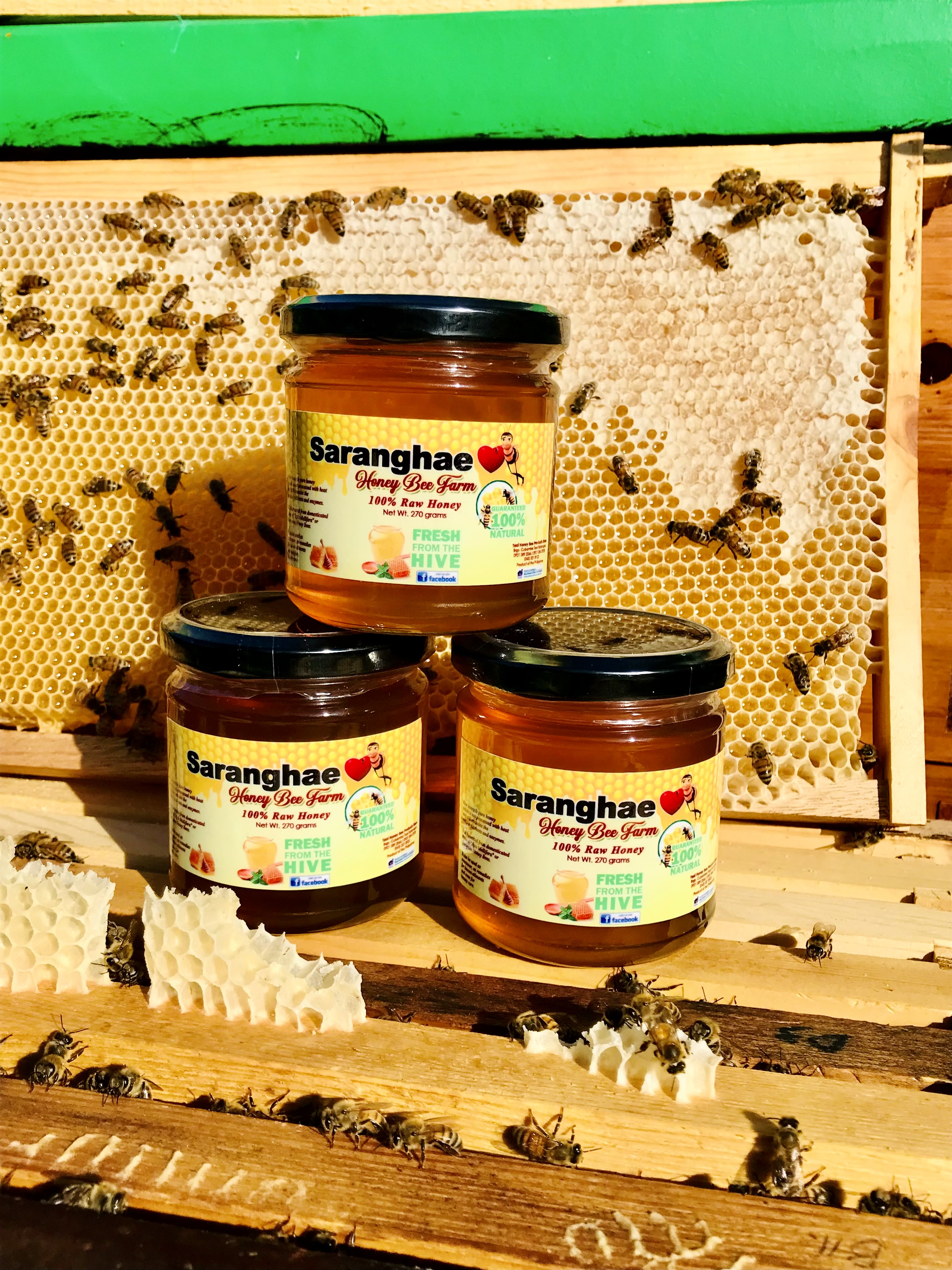
Their products are available in their physical store and on Shopee and Lazada.
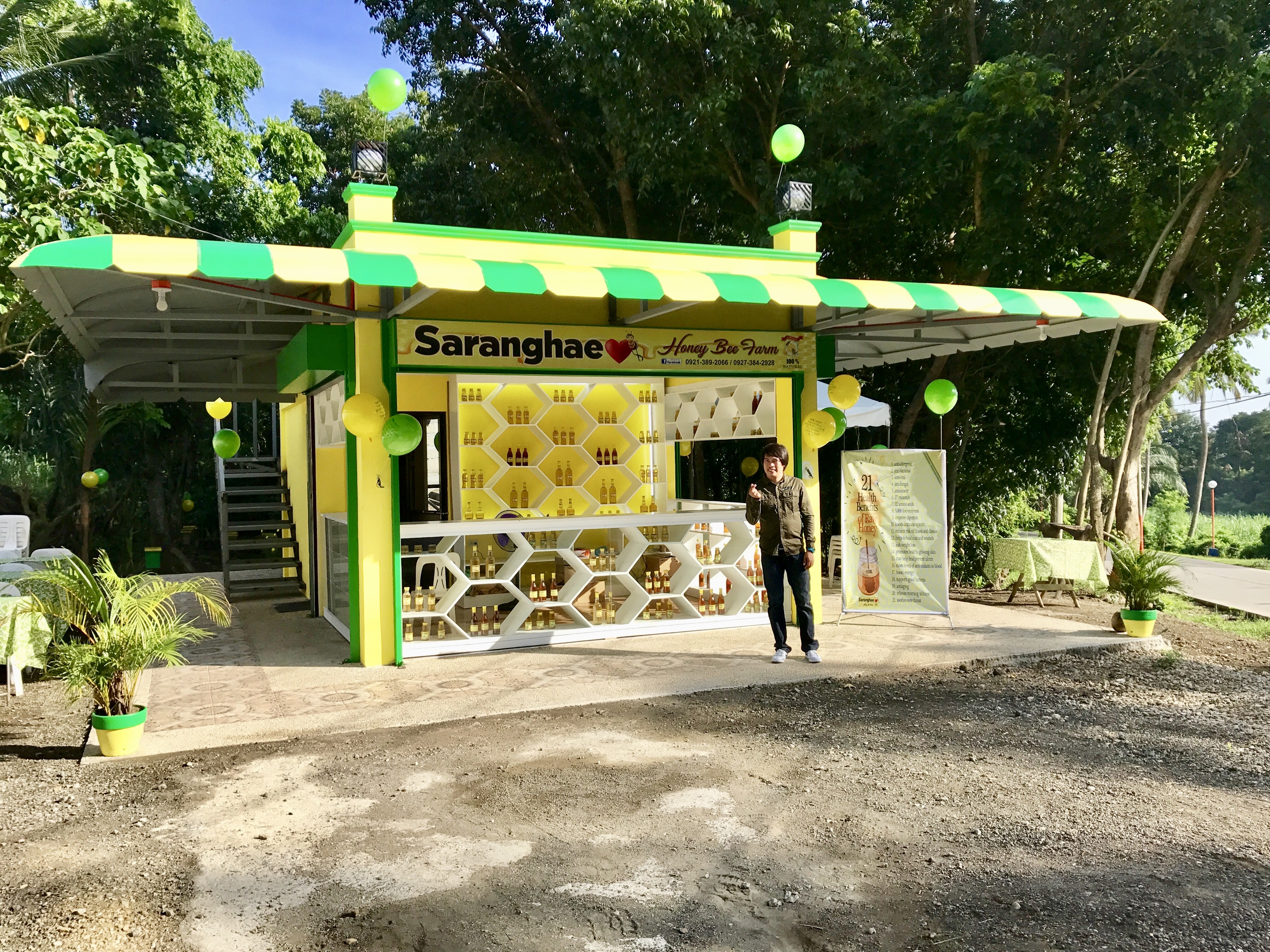
To ensure the quality of their products, Raymund checks the hives weekly to know the status of each colony. During the harvesting of honey, he propagates, so there will be an increase in colonies.
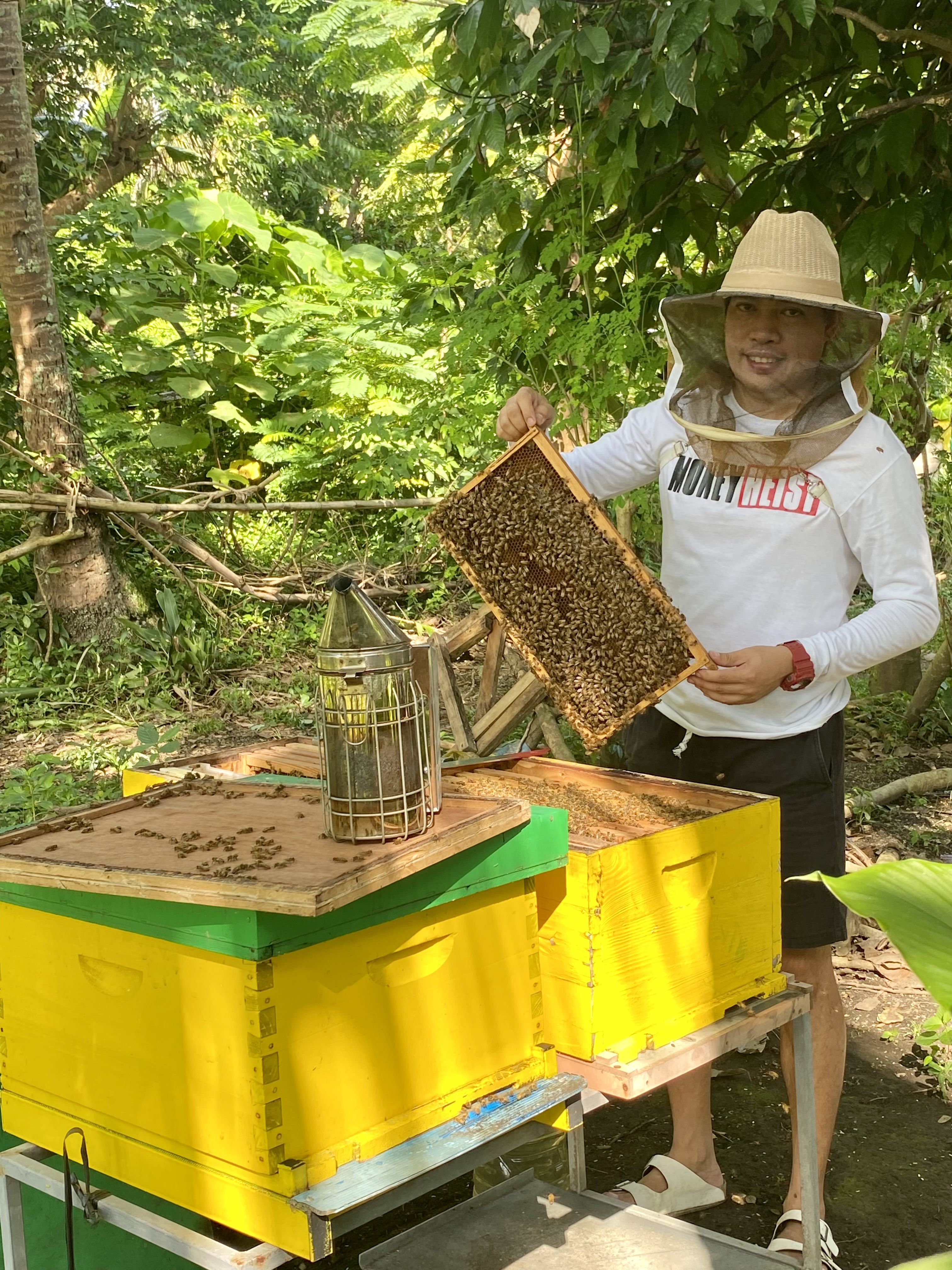
“We make sure that our colonies are strong before honey flow season comes, and we also scatter them to different locations during honey flow season to maximize the nectar that the honey bees collect; with that, they will produce more honey.”
They have 200 colonies of stingless bees, 70 colonies of native bees, and seven colonies of European honey bees.
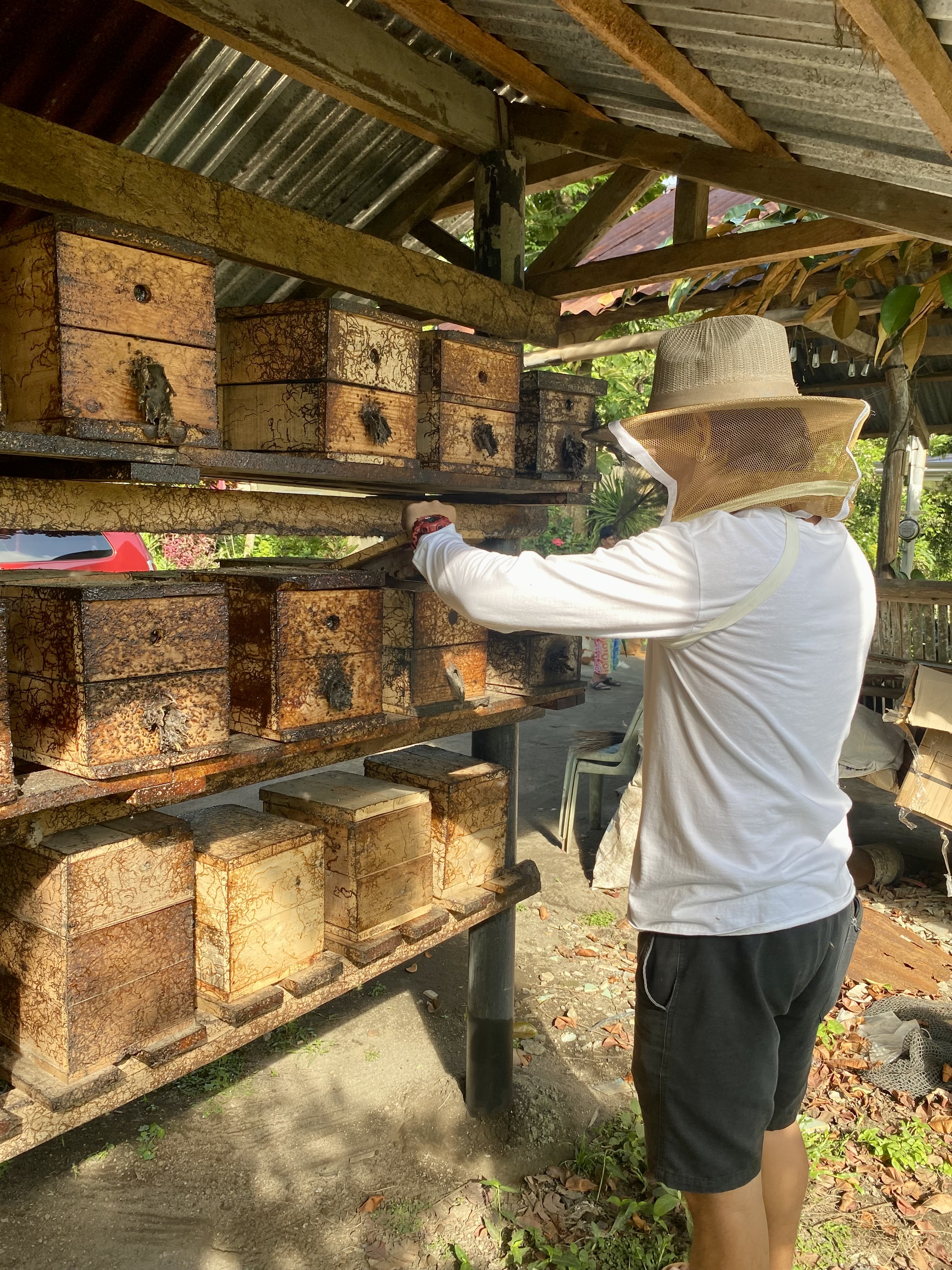
The destruction caused by volcano eruption
The large number of colonies at Saranghae Honey Bee Farm makes it vulnerable to both predation and mortality.
“One of our common problems here in our bee farming business is the predator, the bee eater bird; they attack in huge numbers and they eat the forager bees. This is also the reason why our colonies collapsed,” Raymund said. He added that to overcome this problem, he scattered the colonies to different locations for them to be safe.
“Another problem we encounter here at our bee farm is the high mortality of our forager bees because of insecticide. Some farmers spray chemical insecticide on their crops that is poison to our honey bees." Raymund stated that they encourage some farmers near Saranghae Honey Bee Farm to use alternative and natural methods in taking care of crops instead of using chemical insecticides.
Raymund also recalled the eruption of Taal volcano as a big challenge to his bee farm because all of the flower and fruit bearing trees are covered with volcanic ashes. “We had to relocate our bees to a different town for them to survive. During that time, we also closed our physical store.”
One thing about Korean culture he applies in his beekeeping business is positivity. “Koreans always say the word fighting, especially during hard times; it is an attitude I have acquired from them to keep going and never give up, which helped me overcome a lot of challenges,” he said.
If opportunity comes to you
Raymund said that he always tries his best to inform and inspire other people, especially overseas Filipino workers, that their businesses can succeed in the Philippines. They only need to invest smartly, be knowledgeable about the field, and have passion for what they will do.
“If they want to settle here in the Philippines and venture into the field of agriculture business, they really need to save money while they are still working abroad, so if the opportunity comes, they will have the money to use as capital,” Raymund said.
He also said that when one decides what business they want to pursue, they must attend training sessions and seminars, which will help them gain more knowledge about it and avoid mistakes and failures.
Photos by Raymund Mendoza